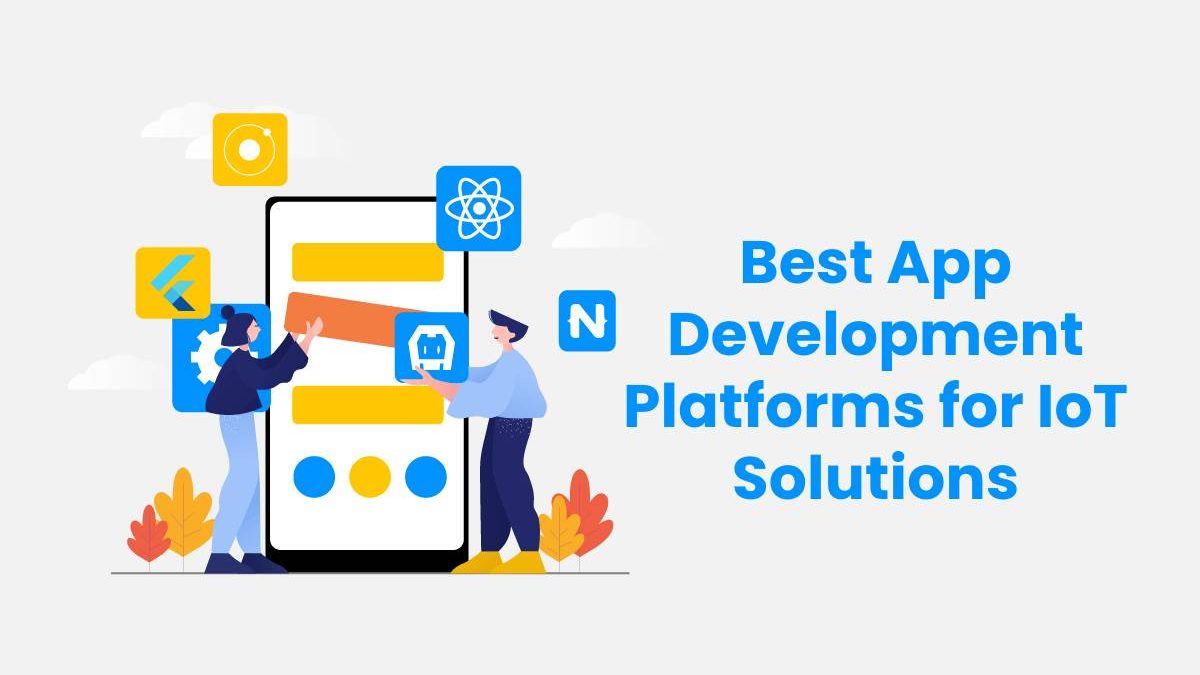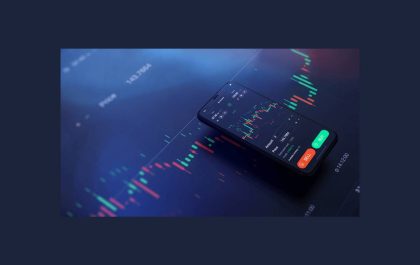Best App Development Platforms for IoT Solutions
Developing IoT solutions comes with some unique challenges when compared to regular app development. And while many platforms and software tools have been created to help developers tackle those challenges, that creates the problem of having to figure out which development platform to use for any given project.
Choosing the wrong platform can not only lead to app instability and development problems, but it can get you stuck having to pay more and more to keep the app updated and running. So this is a decision that needs to be made with the same care that goes into deciding whether or not to invest in space stocks or partnering up with another software developer.
Table of Contents
What an IoT development platform should be able to offer
Any IoT development platform worth their salt should make it easy for developers to implement robust security options, facilitate data integration, and give developers the option to customize and expand the range of tools at their disposal.
The need for security and data integration hardly needs to be explained at this point. As for why the option for customization is important, that is because IoT solutions are still a new and evolving field. This makes it much harder for developers to find solutions that do everything they need it to do right out of the box, and waiting for the platform developers to implement new features isn’t always possible.
This means that an adaptable and expandable platform can be the difference between your team being able to finish a given project on the current platform and your team having to port the work to another platform. Flexibility also makes it easier to provide long-term support for the app, and it facilitates the implementation of new features down the line.
Finally, while we won’t detail the pricing scheme of each platform in this article, make sure to check the fine print before you commit to any given platform. Ongoing licensing fees, support fees, and other hidden costs can end up making even simple projects go way over budget. Or in a worst-case scenario, ballooning costs can kill a project entirely.
Here are some of the most prominent names in the IoT development space.
1 – Amazon Web Services
Versatile, adaptable, practical, and endlessly popular, AWS offers a wide range of cloud computing and IoT development solutions. On top of being robust and affordable with a pay-as-you-go model, AWS also has the advantage of packing several different tools in one place. This means it can be used to program, host, and administer live apps, all in one place. Developers can also — with a bit of work — combine various Amazon tools to achieve specific goals with their application.
AWS is so useful that even developers that specialize in other platforms often end up using Amazon’s service as a set of extended tools to fit certain purposes. And if your company or client has already committed to using AWS cloud solutions for data storage and management, building and/or hosting IoT solutions in the AWS cloud can make certain operations easier.
2 – Google Cloud IoT
Google first launched its suite of IoT solutions back in 2017, with the public beta release of the Google Cloud Internet of Things (IoT) Core. They have since greatly expanded their IoT capabilities, helping developers better manage and deploy their solutions.
The platform’s IoT Core is capable of capturing and handling data from IoT devices, as well as offering a variety of management solutions. The platform also packs plenty of security options, including MQTT and HTTP protocol bridges, as is to be expected.
Google’s platform can also perform data ingestion and message routing, handle fast and secure real-time data analytics and help users visualize data through reports and dashboards. Google has also integrated their IoT platform with some of their other cloud solutions, which allows them to offer machine learning features, and use Google Maps to help developers and managers visualize the location of connected assets.
3 – Azure IoT Hub
Azure is Microsoft’s suite of cloud-based solutions, which includes plenty of useful tools for IoT development. The platform stands out from the cloud through its focus on enabling IoT edge development, keeping data secure from the edge of the network to the cloud. The Azure IoT hub also offers a variety of AI and machine-learning-based solutions, as well as the ability to allow devices to operate even in offline mode, to better support developers working on edge devices.
4 – IBM Watson IoT
IBM’s Watson IoT solution focuses on cloud services and device management solutions. It can help developers gain insight from devices in a network by providing secure communication with scalable connectivity options and a robust suite of data lifecycle management options. The platform also offers data-storage solutions and built-in monitoring dashboards.
5 – Salesforce IoT Cloud
Salesforce’s main focus is on customer management, which translates into the range of features offered by their IoT platform. It’s built to facilitate integration between IoT devices and customer management platforms, such as CRMs. Its uses are more limited, but on the other hand, the platform is relatively easy to use.
Related posts
Sidebar
Recent Posts
The Best Forex Brokers for Beginners
Since COVID-19 first popped up, interest in the forex market has increased dramatically. Knowing how to get involved with minimal…
Maximizing Success: The Symbiosis of Dedicated Software Development Teams and Product Design Services
The Symbiosis of Dedicated Software Development Teams and Product Design Services In the rapidly evolving landscape of technology, businesses aiming…



